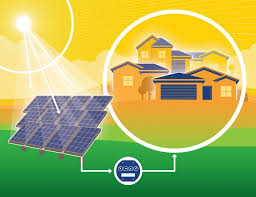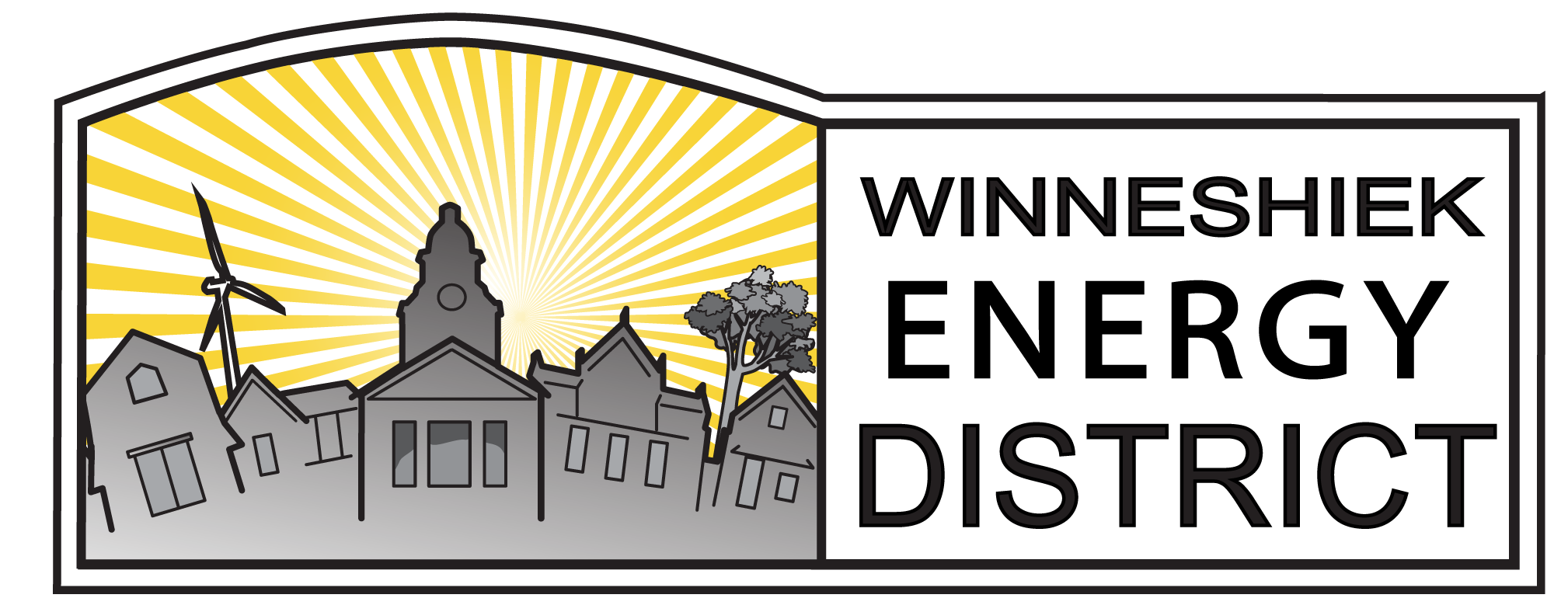Solar PV can be a solid financial decision for your taxpayers, a critical kick-start to a local solar market, and an important leadership statement. This page is meant to consolidate resources relevant to local governments in Iowa considering solar PV projects. Many of these resources are also relevant to other forms of renewable energy and to others interested in solar, especially other non-taxable entities.
Establish a key point person within your entity, define a work team (facilities, financial, Board rep, etc), evaluate siting and ownership options, and use the solar contractor/developer base and your peer local governments as resources.
Examples of Public Entity Solar in Iowa
Johnson County has added four solar PV systems to their facilities since 2015: three ground-mount and one roof-top for a total of 330 KW. In 2016, the County won 1000 Friends of Iowa Best Development Award for Innovative Leadership for their solar efforts, including adding a soil quality restoration project and low-mow grass to the Administration ground-mount project.
The City of Dubuque was the first to attempt a 3P-PPA with Eagle Point Solar, which was challenged by Alliant Energy, and resulted in the Iowa Supreme Court decision validating 3P-PPA use in Iowa.
WACO School District may be the first in the state to be near 100% solar powered, thanks to multiple phases of construction and diverse ownership arrangements.
Luther College (not a public entity but a non-taxable entity faced with similar challenges) installed a 280KW array in 2012 under a lease agreement, and is currently installing an additional roughly 800KW under a 3P-PPA agreement.
General Resources
- Informational Guide for On-Site Generation Iowa Utility Board. A document to help customers consider options.
- The Solar Outreach Partnership is supported by the Department of Energy(DOE). It is a wealth of resources, including access to technical assistance from peers and DOE experts.
- Democratizing the Energy System The Institute for Local Self-Reliance
- Public Rooftop Revolution The Institute for Local Self-Reliance.
- Beyond Utility 2.0 The Institute for Local Self-Reliance
Tax and Financial Incentives
Local governments may own systems outright, or choose to take advantage of tax incentives via third party ownership (covered in the next section). This is not an exhaustive list, but covers the most important and broadly applicable incentives.
- Iowa Database of State Incentives for Renewable Electricity (DSIRE) is the most comprehensive source of incentives and policy that support energy efficiency and renewable energy nationwide. All the opportunities listed below can also be found here.
- Net Energy Metering allows solar owners to feed surplus power to the grid and receive one-to-one kWh credit.
- The Federal Business Energy Investment Tax Credit can be claimed by third party owners and (partially) passed along to customers.
- Iowa has a solar system investment tax credit (DSIRE page) currently worth 50% of the federal business tax credit up to a maximum of $20,000/project. This was expanded in the 2015 legislative session and can be used by third party developers (with partial savings passed to the customer) but may still be oversubscribed.
- Solar systems are eligible for depreciation (via the Modified Accelerated Cost Recovery System, or MACRS) of business property cost basis, which is another very significant financial incentive available to taxable entities and thus, to local governments only via third party ownership. If you work with a developer, have them explain how depreciation and tax credits are resulting in lower installed costs to you. The IRS Publication 946 is the authoritative guide, while the SEIA provides a good overview.
- Iowa’s Alternate Energy Revolving Loan Program is run by the Iowa Energy Center and offers 0% financing on up to 50% of project cost (up to one million).
- The USDA Rural Energy For America Program (REAP) offers competitive grants (up to 25%) and guaranteed loans on renewable energy systems, which a third party owner/developer could apply for.
Third Party Ownership
Third party power purchase agreements (3P-PPA) are mechanisms for 1) non-taxable entities to gain at least some of the benefits of tax incentives, and 2) any customer to purchase solar power directly from an on-site system without the up-front investment necessary to build and own the system. In 2014 the Iowa Supreme Court declared the PPA model a legal and viable option in Iowa.
The Interstate Renewable Energy Council has produced an excellent toolkit to help local governments with solar financing, focused on the PPA model.
The US Department of Energy National Renewable Energy Lab has produced a set of standard contracts for power purchase agreements (PPA). Other public entities that have executed 3P-PPA agreements in Iowa will likely be some of the best resources, and the actual PPA agreements are likely to be public documents as well.
Iowa Solar Power Purchase Agreement (PPA) Developers
Note, many electrical firms are now also solar installers, and some are considering entering the “developer” space and offering 3P-PPA structures. It is a field in flux.
Perry Novak Electric, Decorah
Eagle Point Solar, Dubuque
Blue Sky Solar, Dubuque
SiteGen Solar, Cedar Rapids
Are you a solar developer in Iowa offering 3P-PPA services to local governments and other entities? Contact us.
Relevant Policy
Utilities often claim that solar customers, by reducing energy purchases, are not paying their fair share of infrastructure costs and thus requiring cross-subsidization by non-solar customers. This claim fails to recognize that distributed solar also provides many benefits (or subsidies) to the utility and grid including contributing power during periods of peak demand, reducing transmission losses, avoiding utility investment in new generation, and frequency and voltage regulation. Determining this true “Value of Solar” (VOS) may represent a future alternative to net metering. A VOS is already in use in Minnesota, in Austin, TX, and under study across the country. A Feed-In-Tariff is another approach to placing specific value on solar (and other renewable energy) generation, and establishing certainty via long-term contracts. It is the most successful solar incentive globally, and is worth considering in Iowa.
 Community or Shared Solar is the fast growing segment of the solar industry. Considering fewer than half of utility customers have an adequate site for “behind-the-meter” solar PV, shared offsite arrays can allow everyone the opportunity to participate.
Community or Shared Solar is the fast growing segment of the solar industry. Considering fewer than half of utility customers have an adequate site for “behind-the-meter” solar PV, shared offsite arrays can allow everyone the opportunity to participate.
Sharedrenewables.org gives a snapshot of state-level policy, the Interstate Renewable Energy Council has developed model rules for shared renewables for states and regulatory bodies to follow, and our neighbors to the north have the most active program in the country. The time is right for shared renewable legislation in Iowa.
